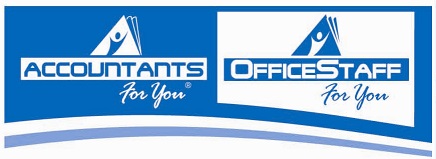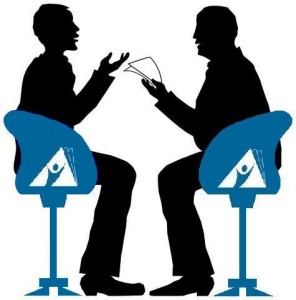Career Guidance from a Hiring Agency
It can sometimes seem that finding the right job can be as difficult as putting together a puzzle. All the pieces have to fall into place just right. And there can be so many pieces! As an established hiring agency serving Philadelphia and beyond, we know what employers are looking for and how to present the assets of our job seekers in the most positive and attention grabbing way. In the next few sections we offer you some tips that will help you in your quest for the perfect employment opportunity.
Click on a section below:
Resumes and Cover Letters
Interviewing Techniques
Interview Follow Up
Resignation and Counter Offer Dangers
Resumes and Cover Letters
Resumes should be written in chronological order, with your most recent job listed first.
One page is best, two pages are acceptable if you have been in the workforce for several years.
Unless you are a recent college graduate and new to the workforce, education should be at the bottom. Computer/technical skills should also be listed in a separate section at the bottom.
Keep it as easy to read as possible, with lots of white space. Use bullet points and phrases instead of sentences and paragraphs. Don’t get fancy, stick to a simple easy to follow format.
Proofread it very carefully, and have someone else proof it too.
Your cover letter should include the position you are applying for and a very brief description of your qualifications for the job.
If emailing your resume, your email counts as much as your cover letter and resume. Use spell check, and re-read it carefully. Do not use IM abbreviations.
Interviewing Techniques
The Day Before:
– Begin with the Internet. Conduct a key word search on the company name. Review the company’s website. Find out as much about the company history, its current situation and its future plans as you can.
– Ask your recruiter to provide additional information about the people you will be meeting and help in preparing realistic questions to ask during the interview.
– Practice your presentation and answers to common interview questions. Know what’s on your resume, and be prepared to go into more detail about your experiences.
The Day of the Interview:
– Wear a business suit in a conservative color. Even if the company generally dresses casually, an interview requires you to be more respectful of protocol.
– Keep jewelry and perfumes/cologne to a minimum.
– Arrive 10 to 15 minutes early. Make sure you have good directions, take a test drive if you are unsure of their location.
– Bring multiple copies of your resume.
– Turn off your cell phone.
– First impressions are everything, have a firm handshake and direct eye contact.
– If you are asked to complete an application or other paperwork, do so neatly and completely.
The Interview: Your Presentation and Answers to Questions
– Maintain good posture and direct eye contact during the entire interview.
– Be prepared to speak about your professional experience, education, personal and professional interests and affiliations, and anything else in your background.
– Stay away from just yes and no answers, but keep your responses brief and on track with the question.
– If you are unclear about a question, ask for clarification. Better to be sure, then to answer a different question than what was asked.
– Be positive about your strengths and accomplishments, and how they will help you contribute to the growth of the department or the bottom line of the company.
– Be positive about your reason for making a change in employment, never talk badly about a former employer.
– If asked, a typical weakness could be lack of management experience or underutilization of your skills at your present position.
– If asked about your long term goals; speak about more challenges, responsibilities, opportunities, etc.
– If asked about your salary requirements, ask what range the company is looking to pay and respond that you are in that salary range. Try to avoid giving an actual salary amount, and do not ask about benefits. The tone of the interview should be what you can do for the company, not what can the company do/provide for you.
– Ask intelligent questions about the job using your experience in your previous job to show your strengths and abilities. Asking about possible advancement opportunities shows you are career oriented.
– At the conclusion of the interview, if you are interested in the job, be sure to let the interviewer know. Mention that you enjoyed your meeting, are very interested in the opportunity, and hope you will be one of those considered for the next step.
Interview Follow Up Suggestions
Ask for a business card at the end of the interview and ask for their preference of contact: e-mail, phone, etc.
Send a thank you note expressing your gratitude for their time and for the opportunity to meet. Highlight your strengths and qualifications in relation to the job, and express your interest in the position. Proofread it very carefully before sending.
If the interviewer mentioned they would be moving on to the next step or making a decision by a certain date, it is perfectly acceptable to follow up with a brief email or phone call expressing your continued interest. Do not over do it, one well timed follow-up is much better than making a pest of yourself.
Resignation and Counter Offer Dangers
It’s generally a very exciting time when you have been offered the position you were hoping to receive. However, resigning from your current job can sometimes be stressful.
Put your resignation in writing, including the last date you will be working. Be upbeat but firm. There is no need to go into long details about your reasons for making a change.
Sometimes, your employer will make a counter-offer, offering you more money to stay. Be very wary of this, often they are just aren’t ready to have you leave. After all, you caught them by surprise and they don’t have a replacement for your job. Statistics show that most people who accept a counter-offer from their employer are likely to leave within 6 months anyway.

